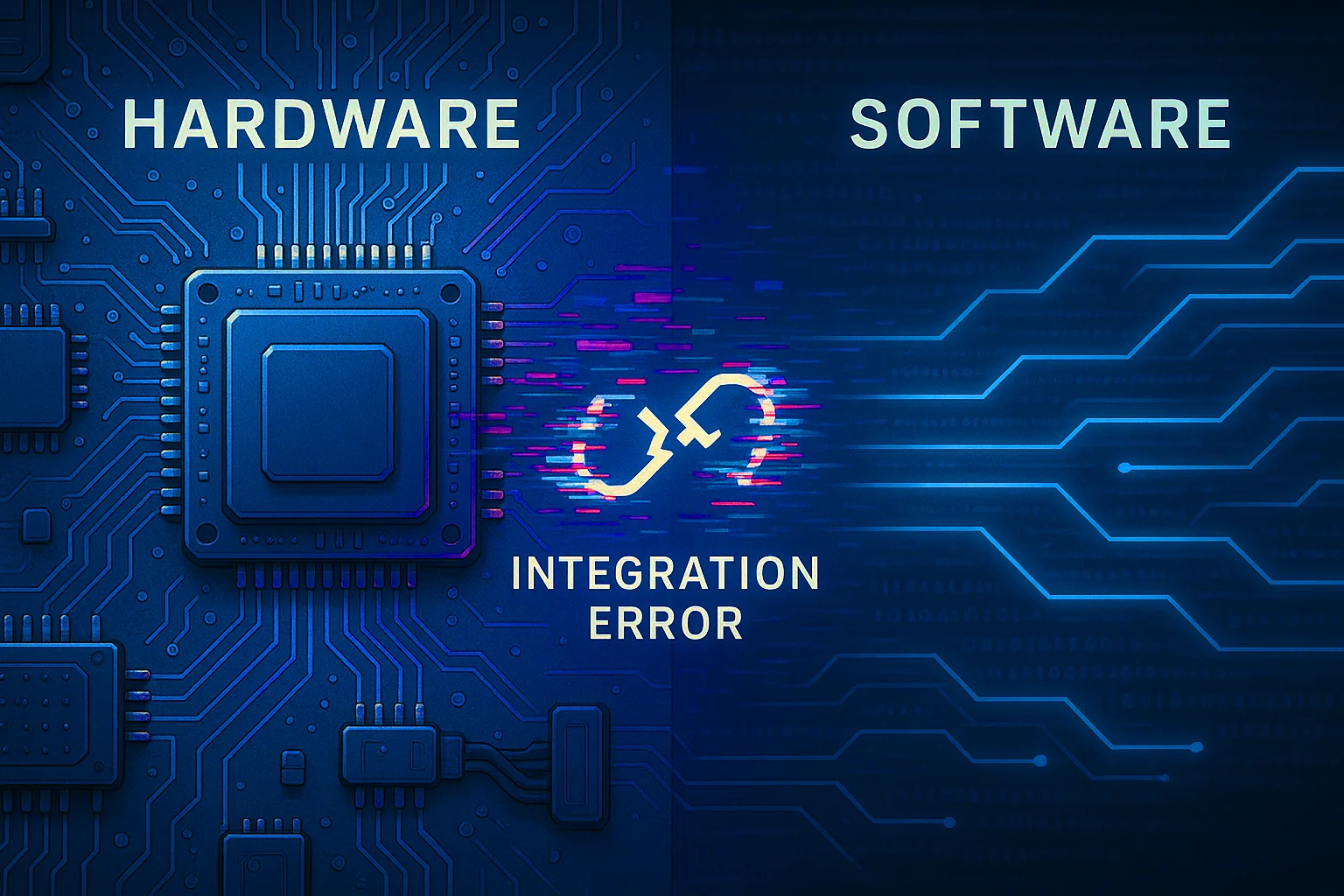Key Takeaways
- AI is a Tool, Not a Threat: Leverage AI and automation to enhance productivity but maintain a deep understanding of code for strategic problem-solving.
- Problem-Solving is the Ultimate Differentiator: As routine tasks become automated, advanced problem-solving and innovative thinking set you apart.
- Specialization Equals Success: Master high-demand areas like AI/ML, cybersecurity, and cloud computing to stay relevant in a rapidly evolving software engineer job market.
The software engineer job market is shifting fast, fueled by breakthroughs in artificial intelligence (AI) and automation. But don’t believe the hype—AI isn’t coming for your software engineer job. It’s here to make you more efficient, enabling you to focus on what really matters: solving complex problems and driving innovation.
According to the U.S. Bureau of Labor Statistics, employment for software developers, quality assurance analysts, and testers is projected to grow by 25% from 2022 to 2032, translating to approximately 153,900 new software engineer job openings each year. This growth is driven by increasing demand for software solutions across industries, further underscoring the importance of staying ahead in this competitive field.
Here’s how to navigate this evolving terrain and land your dream software engineer job.
1. Embrace AI and Automation Tools
AI is revolutionizing software development, streamlining tedious tasks, and amplifying productivity. Tools like GitHub Copilot are redefining how developers code, enabling faster task completion and improved code quality. According to a case study at ANZ Bank published on Finextra, developers using GitHub Copilot completed tasks 42% faster than those who did not use the tool.
The study also found that Copilot-assisted code had fewer issues, leading to better maintainability and fewer production errors. Additionally, engineers reported enhanced productivity and job satisfaction, prompting ANZ to expand Copilot usage to about 1,000 engineers. If you want to be competitive in the software engineer job market, you need to embrace AI.
How to Get Started
- Master AI-Assisted Coding: Get comfortable with AI coding assistants like GitHub Copilot. They handle repetitive tasks, freeing you to tackle complex problem-solving and architecture.
- Integrate Automation Pipelines: Streamline your development workflow with automation tools that handle testing and deployment. This leads to faster, more reliable software releases.
- Stay Ahead of the Curve: Keep up with AI advancements by following tech publications and joining webinars. Knowledge is your competitive edge.
Pro Tip
AI tools amplify your productivity, but don’t let them replace your understanding of code logic. A deep grasp of the underlying structure is crucial for debugging and strategic decision-making and is essential in landing a software engineer job.
2. Develop Advanced Problem-Solving Skills
With AI taking on more routine coding tasks, human creativity and problem-solving are in higher demand than ever. Jayesh Govindarajan, Salesforce’s AI Executive Vice President, points out that problem-solving drive and strategic thinking are more valuable than just knowing how to code. AI can suggest solutions, but only you can define the problem and choose the best approach—an essential skill for securing a software engineer job in today’s evolving tech landscape.
How to Boost Problem-Solving Skills
- Tackle Coding Challenges: Platforms like LeetCode and HackerRank offer complex problems that hone your analytical and critical thinking abilities.
- Dive into Open-Ended Projects: Work on ambiguous projects or experiment with emerging tech like quantum computing or blockchain to enhance your innovative thinking.
- Collaborate in Open Source: Contribute to open-source projects. It exposes you to different coding styles and complex problem-solving approaches.
Pro Tip
Document your problem-solving process. It not only clarifies your thoughts but also impresses potential employers who value transparency in decision-making when interviewing for a software engineer job.
3. Specialize in High-Demand Areas
As automation reshapes the tech landscape, specialized skills are your ticket to staying ahead. Companies are seeking experts who can navigate complex challenges in emerging fields. The highest demand is for specialists in areas like AI/ML, cybersecurity, cloud computing, and DevOps, where rapid innovation and evolving threats require deep expertise.
Specialists who master these niches are not only securing top positions but also commanding premium salaries. To stay relevant, focus on building advanced skills in these areas and continuously adapt to industry changes.
High-Demand Specializations
- Artificial Intelligence and Machine Learning: AI is transforming industries from healthcare to finance. Proficiency in TensorFlow and PyTorch is highly sought after.
- Cybersecurity: With cyber threats on the rise, expertise in ethical hacking, threat modeling, and compliance standards is invaluable.
- Cloud Computing: Cloud migration is accelerating. Skills in AWS, Azure, and Google Cloud are essential.
- DevOps and Site Reliability Engineering (SRE): These roles ensure efficient software delivery and system stability. Knowledge of CI/CD pipelines and Infrastructure as Code (IaC) is a big plus.
How to Gain Expertise
- Pursue Certifications: Platforms like Coursera and Udacity offer specialized programs and certifications that validate your expertise.
- Build Real-World Projects: Demonstrate your skills by building hands-on projects, like predictive models in ML or secure cloud infrastructure.
- Stay Current with Trends: Follow tech news from sources like TechCrunch and The Verge to stay on top of industry changes.
Pro Tip
Keep your skills sharp by continuously learning and adapting. The tech industry moves fast—don’t get left behind.
4. Build a Professional Online Presence
Your digital footprint is your resume in 2025. Employers and recruiters frequently check online profiles to evaluate a candidate’s expertise and cultural fit. Make sure your online presence showcases your skills and thought leadership when you are applying for a software engineer job.
Effective Online Strategies
- Optimize Your LinkedIn Profile: Use a professional photo, write a compelling summary, and list detailed descriptions of your projects and achievements.
- Create a Personal Portfolio: Build a website to display your projects, technical blogs, and testimonials. This one-stop platform reinforces your brand as a tech expert when searching for a software engineer job.
- Engage in Technical Blogging: Publish articles on Medium or contribute to Stack Overflow to position yourself as a thought leader in your domain.
Pro Tip
Actively engage with the tech community. Share insights, comment on discussions, and build a network. It’s not just what you know; it’s who knows you.
5. Leverage Freelancing and Contract Opportunities
Freelancing is more than a side hustle—it’s a strategic move to diversify your experience and expand your skill set. Platforms like Upwork and Freelancer provide global opportunities across various domains, from web development to complex AI projects.
Freelancing Tips
- Start Small, Grow Big: Begin with smaller gigs to establish credibility and accumulate positive reviews.
- Niche Specialization Wins: Focus on a niche, like cybersecurity consulting or mobile app development, to stand out in a crowded market.
- Network and Collaborate: Join freelancing communities and collaborate with other developers to learn and expand your reach.
Pro Tip
Professionalism and clear communication are your best allies in landing a software engineer job. Exceed expectations, and word of mouth will work in your favor in helping you secure opportunities.
Conclusion: The Future Belongs to the Adaptable
The 2025 software engineering job market is bursting with opportunities—but only for those who are ready to evolve. Embrace AI as your productivity partner, hone your problem-solving prowess, and specialize in high-demand areas to secure your place in the future of tech.
At Geisel Software, we’re not just keeping up with the trends—we’re defining them. With over 20 years of experience and a team that’s among the top 1% in the field, we’re pioneering solutions in robotics, AI, cloud computing, and beyond. We don’t just adapt to change; we drive it. Ready to lead the way? Let’s build the future, together.
Looking for a software engineer job? Check out our open positions: https://geisel.software/careers.





